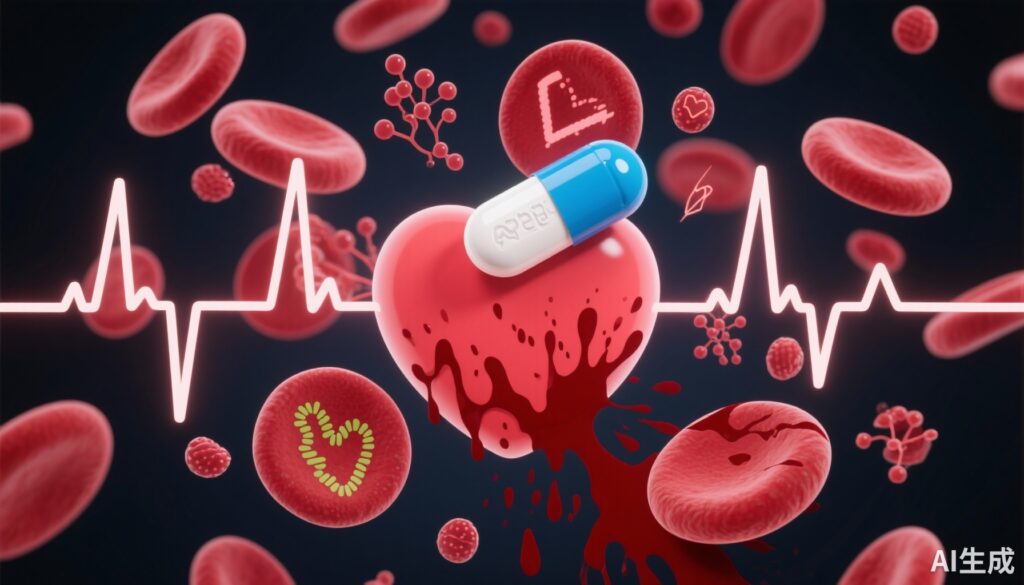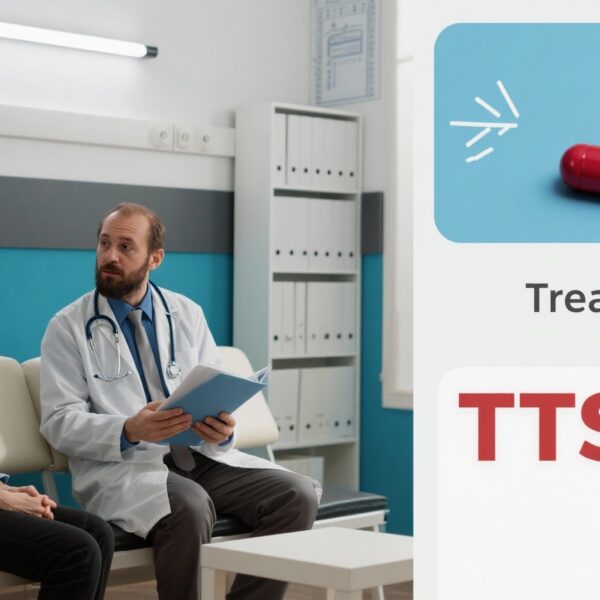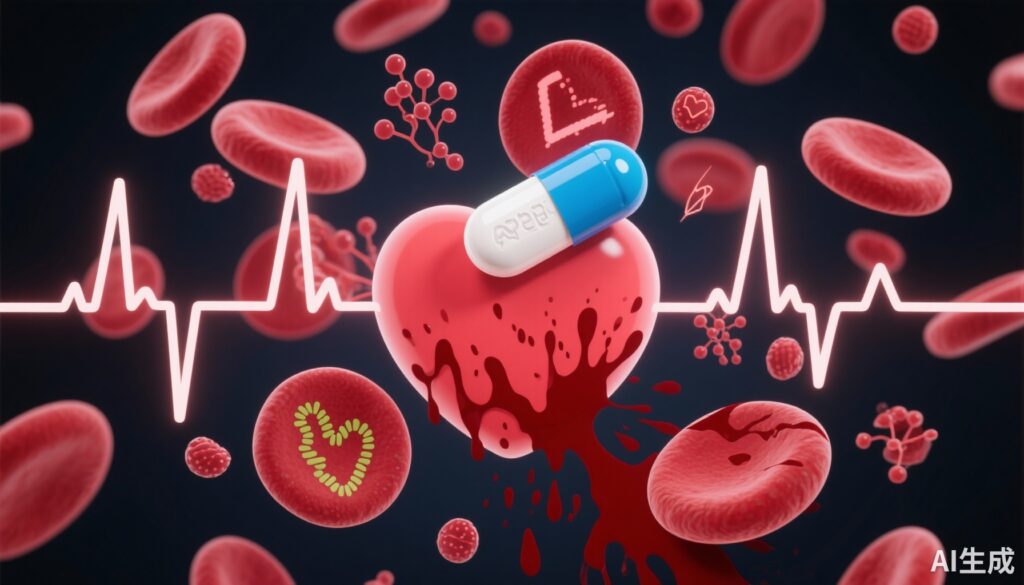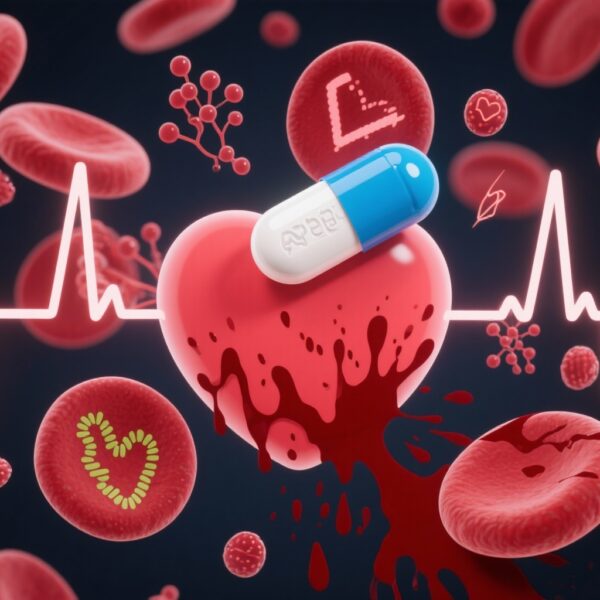Highlight
- Clonal hematopoiesis of indeterminate potential (CHIP) affects 23% of community-dwelling adults aged 70 and older.
- CHIP was not associated with an increased risk of major adverse cardiovascular events (MACEs) in this elderly cohort.
- CHIP carriers exhibited a modestly higher risk of clinically significant bleeding compared to non-carriers.
- Low-dose aspirin showed no differential effect on cardiovascular outcomes or bleeding risk in participants with CHIP versus those without.
Study Background
Clonal hematopoiesis of indeterminate potential (CHIP) denotes the presence of somatic mutations in hematopoietic stem cells without overt hematological malignancy. Emerging evidence links CHIP to an elevated risk of cardiovascular disease (CVD) and mortality, possibly due to increased inflammation and atherogenesis driven by mutant clones. However, the clinical implications of CHIP in older adults and the potential preventive role of aspirin, a cornerstone of CVD prophylaxis, remain unclear. Aspirin’s benefits must be weighed against bleeding risks, particularly in the elderly. This secondary analysis evaluated whether low-dose aspirin reduces CVD events in older adults with CHIP and explored risks of bleeding associated with CHIP presence.
Study Design
This investigation was a prespecified substudy within the ASPREE (Aspirin in Reducing Events in the Elderly) randomized, double-blind, placebo-controlled trial. The parent trial enrolled 19,114 community-dwelling Australians aged 70 years or older, excluding those with prior cardiovascular events, atrial fibrillation, anemia, or high bleeding risk conditions. Of these, 11,402 participants contributed blood samples at baseline for CHIP analysis; 9,434 had complete data for this substudy. Participants were randomized to receive daily aspirin 100 mg or placebo and followed for a median in-trial duration of 4.6 years, with extended posttrial observational follow-up extending to 8.7 years from randomization. Endpoint adjudication included major adverse cardiovascular events (MACEs) and clinically significant bleeding, assessed by blinded expert committees.
Key Findings
Baseline CHIP prevalence was 23% with a variant allele fraction (VAF) ≥2%, and 5.6% had VAF ≥10%. Contrary to prior associations in younger or higher-risk cohorts, CHIP did not confer an increased risk of MACEs at either VAF threshold (2%-10% VAF: adjusted hazard ratio [aHR] 0.84, 95% CI 0.68–1.03, P=0.09; ≥10% VAF: aHR 0.80, 95% CI 0.57–1.12, P=0.19). However, CHIP presence correlated with a modest but statistically significant increase in clinically significant bleeding at the lower VAF threshold (2%-10% VAF: aHR 1.24, 95% CI 1.02–1.51, P=0.03), though not significantly at ≥10% VAF (aHR 1.21, 95% CI 0.85–1.73, P=0.28).
Regarding aspirin therapy, no significant interaction was observed between CHIP status and aspirin effects on either MACEs or bleeding outcomes. Aspirin did not reduce MACEs in CHIP carriers (2%-10% VAF: HR 1.40, 95% CI 0.77–2.53; ≥10% VAF: HR 1.33, 95% CI 0.52–3.37) or those without CHIP (HR 0.91, 95% CI 0.72–1.16), nor did it increase bleeding disproportionately in CHIP carriers (heterogeneity P=0.91). These results suggest aspirin’s risk-benefit profile for primary prevention is unaffected by CHIP presence in older adults.
Expert Commentary
The ASPREE substudy provides novel insights into the nuanced relationship between clonal hematopoiesis and cardiovascular outcomes in an elderly, relatively healthy population. While previous work identified CHIP as a cardiovascular risk enhancer, this study’s lack of association may reflect population differences, such as age, comorbidities, or CHIP clone characteristics and burden. The modestly elevated bleeding risk associated with CHIP warrants further mechanistic exploration, potentially implicating altered hematopoietic function or inflammatory pathways.
Importantly, the neutral effect of aspirin across CHIP strata challenges assumptions that anti-inflammatory properties of aspirin could specifically benefit CHIP carriers. Clinical guidelines currently do not incorporate CHIP status in CVD risk assessment or aspirin recommendations; these data support continued adherence to established guidelines without modification based on CHIP detection. Limitations include the trial’s exclusion criteria limiting high bleeding risk individuals, a reliance on baseline CHIP measurements without longitudinal monitoring, and limited power for rare outcomes at higher VAFs.
Conclusion
In older adults aged 70 years and above without prior cardiovascular events, CHIP is common but does not independently increase the risk of major adverse cardiovascular events. CHIP is associated with a slightly higher risk of clinically significant bleeding. Daily low-dose aspirin for primary prevention does not confer additional cardiovascular protection nor increases bleeding risk differentially among those with CHIP. These findings underscore the need for cautious interpretation of CHIP as a cardiovascular risk marker in the elderly and suggest that routine aspirin therapy decisions should not hinge on CHIP status at present.
Funding and Trial Registration
The ASPREE trial was supported by grants from the National Institutes of Health and other agencies. This secondary analysis was conducted by the ASPREE investigators. Trial registration: ClinicalTrials.gov identifier NCT01038583.
References
- McQuilten ZK, Thao LTP, Bick AG, et al. Clonal Hematopoiesis and Cardiovascular Disease and Bleeding Risk and the Effectiveness of Aspirin. JAMA Cardiol. 2025. doi:10.1001/jamacardio.2025.3756
- Jaiswal S, Ebert BL. Clonal hematopoiesis in human aging and disease. Science. 2019;366(6465):eaan4673.
- Bick AG, Pirruccello JP, Griffin GK, et al. Genetic interleukin 6 signaling deficiency attenuates cardiovascular risk in clonal hematopoiesis. Circulation. 2020;141(2):124–131.
- Institute for Clinical Evaluative Sciences and Canadian Hematology Society. Aspirin use in elderly: Benefits and risks—clinical guidelines. 2023.





